Shark attack researchers investigate ‘mistaken identity’ theory
It is a common theory that sharks mistake humans for other prey, but now researchers are putting it to the test. Meanwhile, shark attack victims claim there is evidence sharks come back for more in targeted attacks.
- ‘Blood in the water’: Shark kept hunting after fatal attack
- Shark attack deaths in Australia at 10-year high
Scientists are comparing how seals swim to the way surfers paddle their boards and swimmers move through the water to try to answer the controversial question of whether shark attacks are a case of mistaken identity.
The research by Associate Professor Nathan Hart from the Department of Biological Sciences at Macquarie University, in collaboration with Taronga Zoo, hopes to ascertain how sharks view their prey.
“We have been filming seals swimming across the top of the water and in the same arenas we had people paddling across and comparing those shapes from the perspective of a shark to get some real data on the idea that it is quite possible for the shark to mistake those objects on the surface, to see if the mistaken identity theory has value,” Prof Hart said.
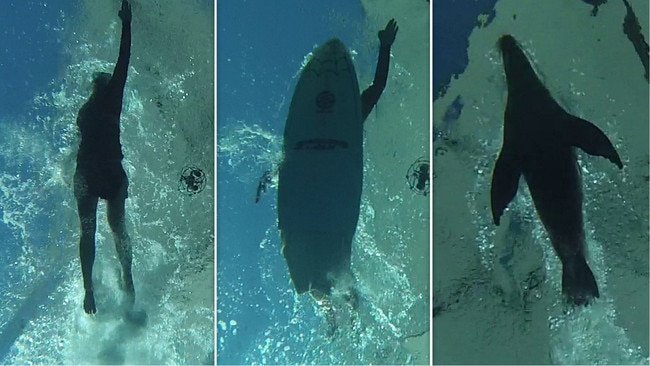
After five fatal attacks this year alone, shark attack survivors are questioning the concept that sharks attack by mistake, almost always bite only once, and then, once they realise their error, stop mauling the victim.
Dave Pearson, who was bitten on the left arm in 2011 at Headland Beach on the mid north coast, set up Bite Club for families and victims of shark attacks.
He and many of the 350 members of the club question the scientific consensus that sharks attack humans by mistake.
“I think we are part of the food chain, mistaken identity doesn’t come into it. They all say that sharks don’t go after people and don’t like the taste, but we have a number in our group where the shark came back a number of times to finish someone so they can’t say that,” Mr Pearson said.
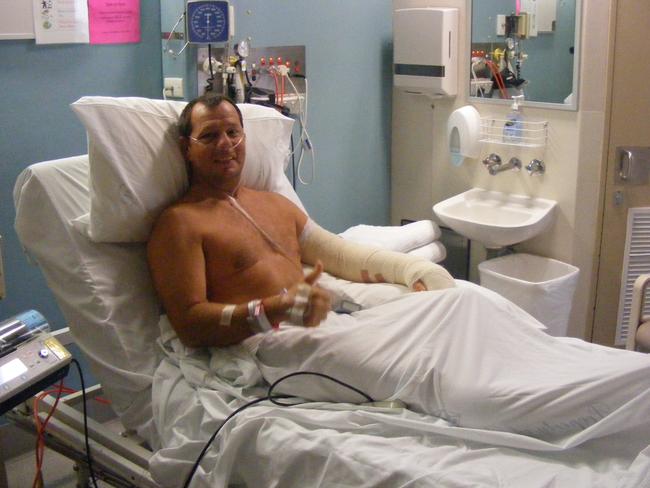
In June, Rob Pedretti was fatally attacked by a great white on the NSW north coast that bit him more than once, and then stalked and attacked all the way to shore the two fellow surfers who rescued him.
“We need to understand why they come back. You ask anyone who has been attacked and it is usually a targeted attack, it gets you and comes back and has another go,” Mr Pearson said.
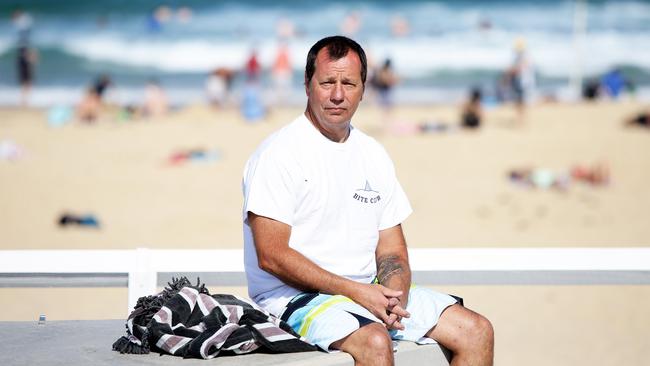
Mani Hart-Deville, 15, was also fatally attacked when he was bitten on the leg as he surfed at Wilsons Headland near Wooli Beach on July 11. Witnesses say the shark struck a second time, mauling the teen’s other leg and tearing a fin off the board.
On February 4 last year, Matt Gallagher was surfing at nearby Urunga when a three metre white knocked him into the air and he had to fight the shark off.
“It hit me underneath, knocked me in the air. I (then) sat on the board and it came up on the left side and rammed into me and I was kicking and punching to get it away, then it came up on the other side. After the last ram into me I thought well the next one could be it,” the 51-year-old said.
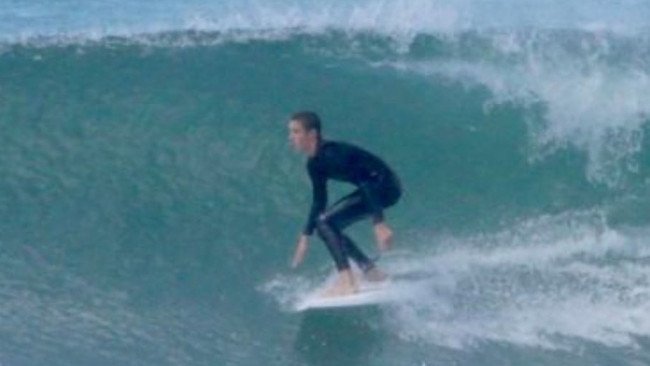
Despite getting a taste of fibreglass board, the shark was not deterred.
“When I talked to the guys from the Department of Primary Industries they were surprised it had come back after its initial hit, it came back another two or three times,” Mr Gallagher said.
Prof Hart said there was little evidence to support sharks are interested in consuming a human once bitten.
“Then you have to wonder why the shark it biting you, it could be the shark is protecting territory, the shark may feel threatened in some way and it is a behaviour response to that,” Prof Hart said.
Marine biologist and shark researcher Dr Blake Chapman said more evidence into why some sharks attacks were sustained affairs.
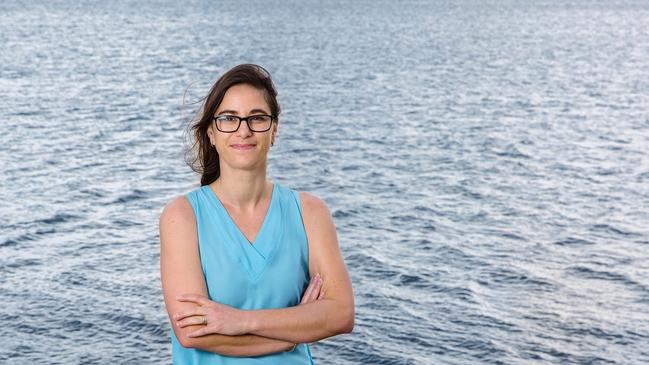
“There is no way of us proving what the shark’s motivation is. I personally would suggest there is a degree of curiosity in these animals, if the shark bites and continues to circle, you can’t say that is not predatory behaviour, the shark might bite and still be curious, but might circle and monitor the situation but there may be a lot of splashing, something is happening, it seems most the times the shark swims away, it’s startled or feeling uncomfortable, but there are these times the sharks tend to stick around and that can have catastrophic outcomes,” Dr Chapman said.
Originally published as Shark attack researchers investigate ‘mistaken identity’ theory
